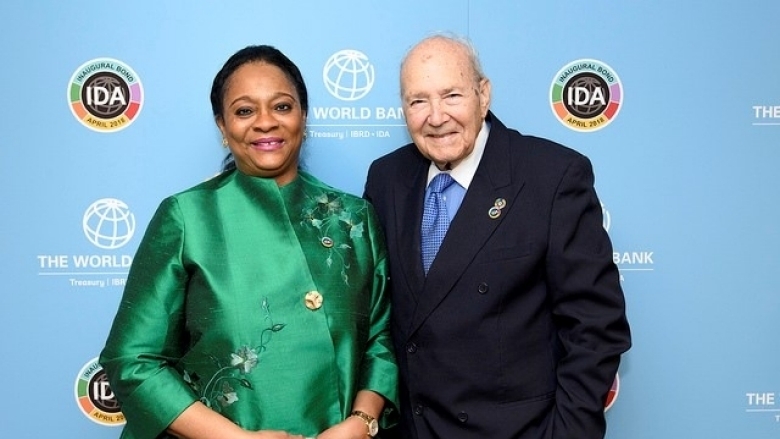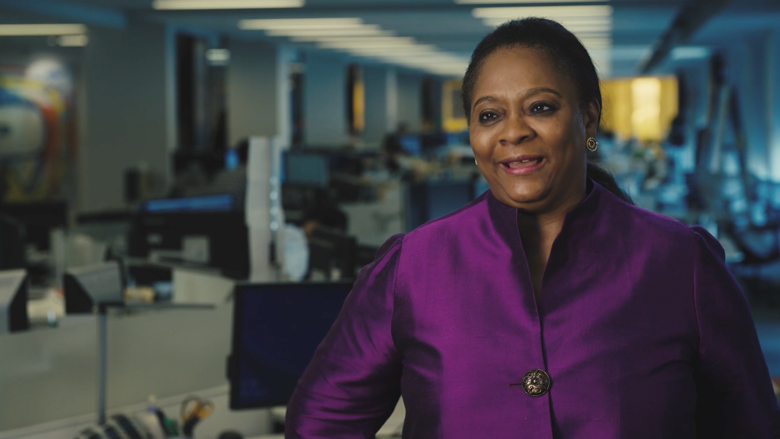The World Bank Treasurers Perspective Series is one of World Bank Treasury’s initiatives to commemorate the 70th anniversary of the first bond transaction which was issued on 15th July 1947. We spoke with Arunma Oteh, Treasurer of the World Bank, to close off these series which started with Gene Rotberg Treasurer from 1968 to 1987. We also interviewed all other subsequent Treasurers, namely Don Roth (1987-1992), Jessica Einhorn (1992-1995), Gary Perlin (1996-1999), Afsaneh Beschloss (1999-2001), Graeme Wheeler (2001-2006), Ken Lay (2006-2010) and Madelyn Antoncic (2011-2015). All of the former Treasurers opened their homes to us, reflected on the importance of connecting capital markets to development and shared their own journey at the World Bank. For Oteh, the journey has been most meaningful.
World Bank Treasurer Arunma Oteh was a young girl growing up in northern Nigeria when she learned what impact capital markets can have on someone’s life and on society in general. Her own education was partly funded by her parents’ thoughtful investments in the Nigerian stock market. It is precisely these investments that supported their most important project – the education of their three daughters. Little did Arunma know then that her whole life will subsequently be devoted to connecting capital markets to development.
“Investing in the capital markets was the reason I got the education and the opportunities I have fortunately had. Therefore, my belief in the transformative power of the capital markets has only grown from strength to strength. People who know me know that I have profound optimism that world-class capital markets can transform societies and change lives,” said Oteh.
It was hailed by many when the ‘Iron Lady’, as Oteh was called for her tough and courageous stance during her five-year term as the Director General of the Securities and Exchange Commission of Nigeria, decided to return to the role of Treasurer of a multilateral development bank as she was the Treasurer of the African Development Bank from 2001 to 2006.



